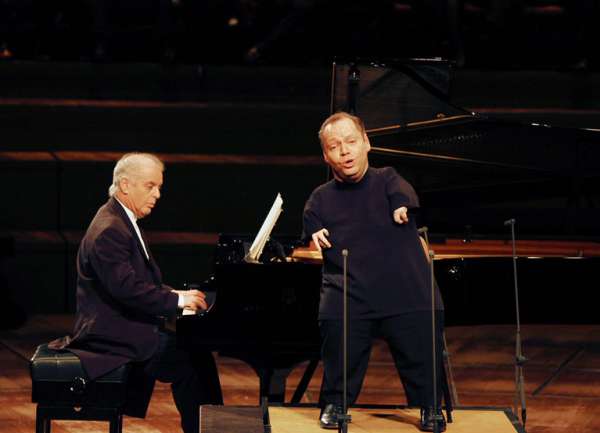 Thomas Quasthoff, standing just four feet three inches tall, was one of thousands of Thalidomide babies born severely deformed when their mothers took the anti-sickness drug during pregnancy in the 1950s and 60s, writes Vida Adamoli.
Thomas Quasthoff, standing just four feet three inches tall, was one of thousands of Thalidomide babies born severely deformed when their mothers took the anti-sickness drug during pregnancy in the 1950s and 60s, writes Vida Adamoli.
He spent his toddler years encased in a sort of plastic shell and his arms are three-fingered flippers. But there is so much more to him than this. Quasthoff’s is a German bass-baritone, a truly inspirational artist with an extraordinary ‘burnished, burgundy-coloured voice’. It is his ability, not his disability, that distinguishes him.
Quasthoff’s life is a triumph of talent and determination over
adversity. Despite enlightened and supportive parents, his childhood
was blighted by a callous society that wanted disabled people
kept out of sight. ‘When I was little and waiting for my mother outside
a shop, passers-by would sometimes tell me I was cursed by a witch,’ he
recalls. ‘And that stays with you. But now I use that in my singing, so
it's actually a plus.’ One appreciative reviewer wrote that his voice is ‘capable
of packing the entire world's suffering into a few notes’.
Thomas Quasthoff’s triumphant musical career is a testament, not just
to his voice, but to his qualities as a human being. With a range
that includes lieder, Bach cantatas and solo jazz improvisations, he has won
three Grammy Awards, performs with the world’s top conductors and
orchestras, and regularly fills concert halls all over the world. His diary
is crammed with engagements until 2015. A happily married man with a young stepdaughter (he met his wife when she was editing a TV programme about him), he says he wants
to be admired as an artist, not a ‘human-interest freak’.
